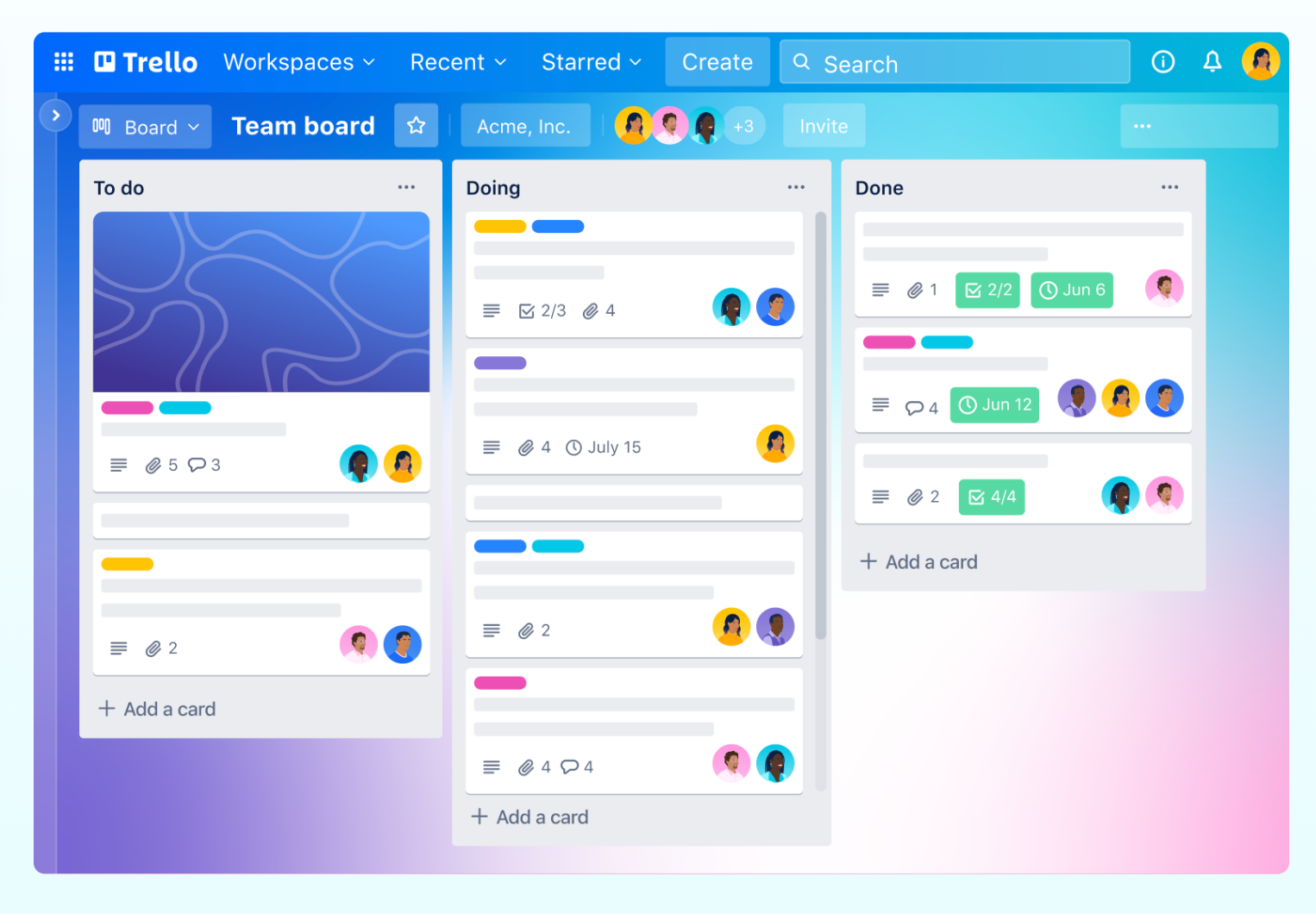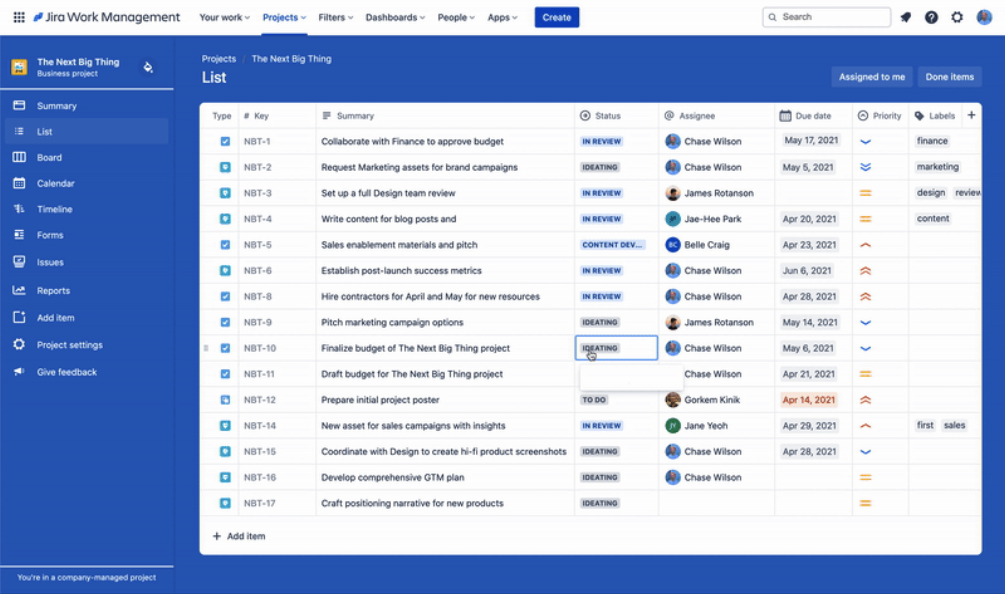Retail managers wear many hats—from managing staff schedules to ensuring compliance and tracking sales—all while creating an engaging experience for customers. But with so many moving parts, keeping track of tasks in a busy retail environment is no easy feat. That’s where retail task management comes in.
This post dives into what retail task management is, why it’s essential, and how you can overcome common challenges with the right tools and strategies. Whether you’re managing one store or multiple locations, this guide provides insights to streamline your operations.
What is retail task management—and why should you care?
Retail task management refers to the coordination and execution of all activities within a retail operation. From organizing staff schedules to ensuring compliance with protocols, effective retail task management keeps operations running smoothly.
Why does it matter? Because when tasks are mismanaged, the entire operation suffers. Communication gaps lead to missed deadlines, unorganized stores affect customer satisfaction, and compliance oversights can result in costly penalties.
By mastering task management, retail managers can boost productivity, enhance collaboration, and deliver a better shopping experience.
Challenges of retail task management
Running a retail operation comes with its own unique set of challenges. Here are some common pain points:
- Unclear task delegation
Who’s responsible for what? Without clarity, tasks can slip through the cracks, leading to inefficiencies and frustrated staff.
- Manual processes
Relying on spreadsheets, sticky notes, and manual checklists is not only time-consuming but leaves room for human error.
- Missed deadlines
A disorganized store or unstocked shelves can hurt sales. Managing time-sensitive tasks like inventory restocks or promotional displays is vital in keeping operations on track.
- Compliance risks
Retail stores are subject to strict labor laws and health regulations. Missing inspections or failing to meet policies can have serious consequences.
Do any of these sound familiar? You’re not alone—many retail managers face these hurdles daily. Fortunately, there are solutions.
The benefits of using retail task management tools
Harnessing the power of task management software can transform the way your retail business operates. Here’s how these tools can make a difference:
1. Improve efficiency
Say goodbye to time-wasting manual processes. With automation, you can set recurring tasks (e.g., daily restocks or monthly reports) and reduce human error.
2. Streamline communication
Task management tools centralize communication across your team. Everyone knows what they need to do, when to do it, and how it contributes to the bigger picture. No more endless email chains or forgotten conversations!
3. Real-time tracking
Keep a finger on the pulse of your operations. Track task progress in real-time, identify bottlenecks, and ensure nothing falls off the radar.
4. Accountability boost
By assigning tasks to team members, everyone has clear ownership. This fosters a culture of accountability and collaboration among staff.
How to choose the right retail task management solution
Not all tools are created equal. Here are some important factors to consider when selecting a store management tool tailored to your business needs:
1. Ease of use
A complicated tool is one your team might avoid using. Look for a system with an intuitive interface and minimal learning curve.
2. Scalability
Running just one store for now? Make sure the tool can adapt if you expand to multiple locations.
3. Integrations
Choose software that integrates seamlessly with systems you already use, such as POS platforms, payroll software, or inventory management solutions.
4. Mobile accessibility
To stay on top of tasks while on the go, ensure the solution works seamlessly on mobile devices.
5. Cost-effectiveness
From annual subscriptions to app-based pricing, compare costs and ensure the value matches your budget.
By prioritizing these features, you can find the perfect tool to empower your team and elevate your operations.
Best tools for retail task management
Finding the perfect tool isn’t just about cost—it’s about fitting the needs of your business. Here are 3 top-rated retail task management tools to consider:
1. Trello
- Best for: Simple task tracking
- Developer: Atlassian
- Features: Kanban boards, task automation, integrations with Slack and Google Drive
- Pros/Cons: User-friendly but limited for complex workflows
- Pricing: Free tier available, paid plans start at $5/month
- G2 Rating: 4.4/5
2. Jira Work Management
- Best for: Advanced project tracking
- Developer: Atlassian
- Features: Agile reporting, task dependency mapping, timeline views
- Pros/Cons: Highly customizable but may feel overly technical for smaller teams
- Pricing: $7.53/month per user
- G2 Rating: 4.3/5
3. Jotform
- Best for: Task delegation and inventory management
- Developer: Jotform, Inc.
- Features: 200+ workflow templates like Task Approval Process Template, create custom retail apps with retail app templates, inventory tracking with simple forms
- Visual task tracking with Jotform Tables and drag-and-drop workflow customization
- Pros/Cons: Flexible and easy to customize, but some features may require setup time
- Pricing: Free plan available; Pro plans start at $34/month
- G2 Rating: 4.7/5
Best practices for retail task management
Once your tool is in place, boost retail productivity and collaboration with these actionable tips:
1. Automate wherever possible
Set up recurring tasks and reminders to save time on repetitive tasks.
2. Assign clear task ownership
Avoid confusion by giving every task a designated team member.
3. Regularly review performance metrics
Use built-in reporting features to check on task completion rates and refine your strategy as needed.
4. Foster communication across teams
Hold regular briefings to ensure alignment and address operational hurdles.
5. Schedule strategically
Make use of modern retail scheduling software to optimize your team schedules and minimize overlap.
Transform your retail operations with better task management
Retail task management is a must for any manager aiming to improve efficiency, boost team collaboration, and ensure compliance. Luckily, tools like Jotform make it simpler than ever to plan, track, and execute crucial tasks.
Whether you’re managing a single store or a growing chain, the strategies and tools outlined here can set your team up for success.Take the first step today—explore Jotform’s Retail App Templates and create your custom task management solution!
Photo by Yan Krukau
















Send Comment: